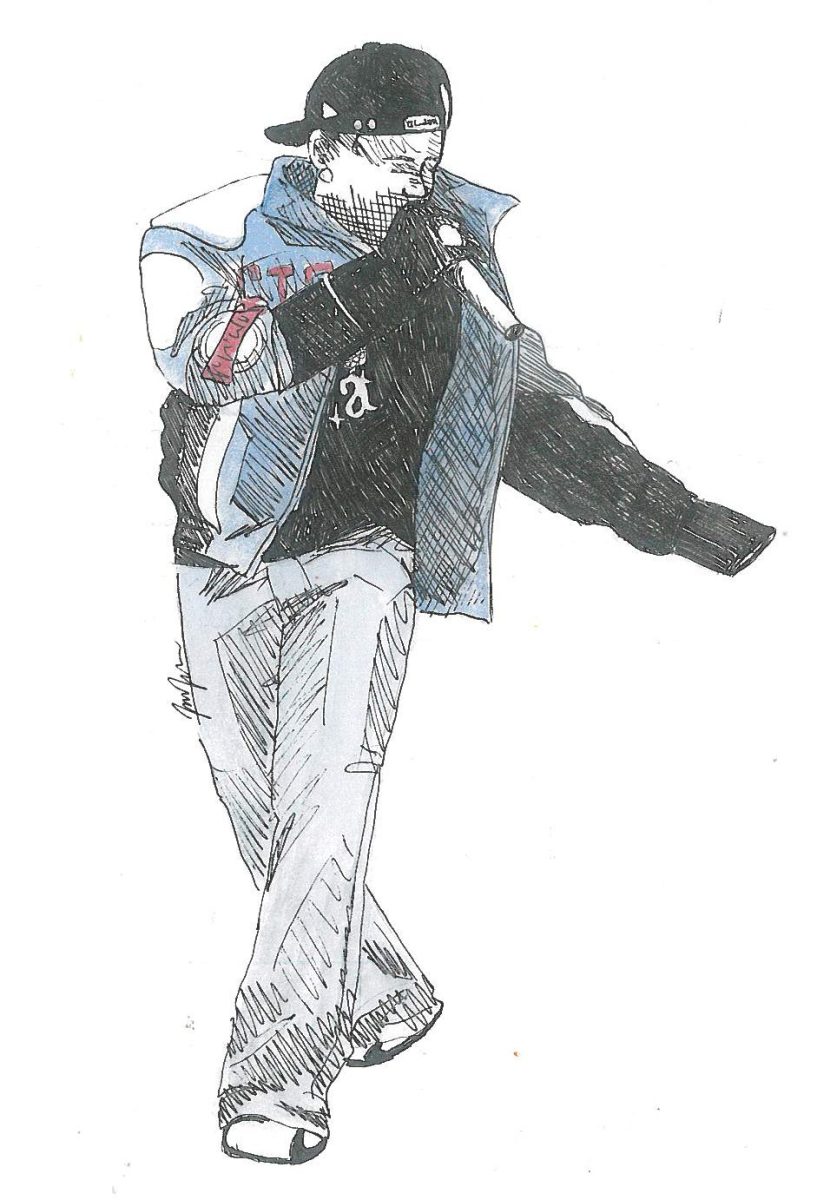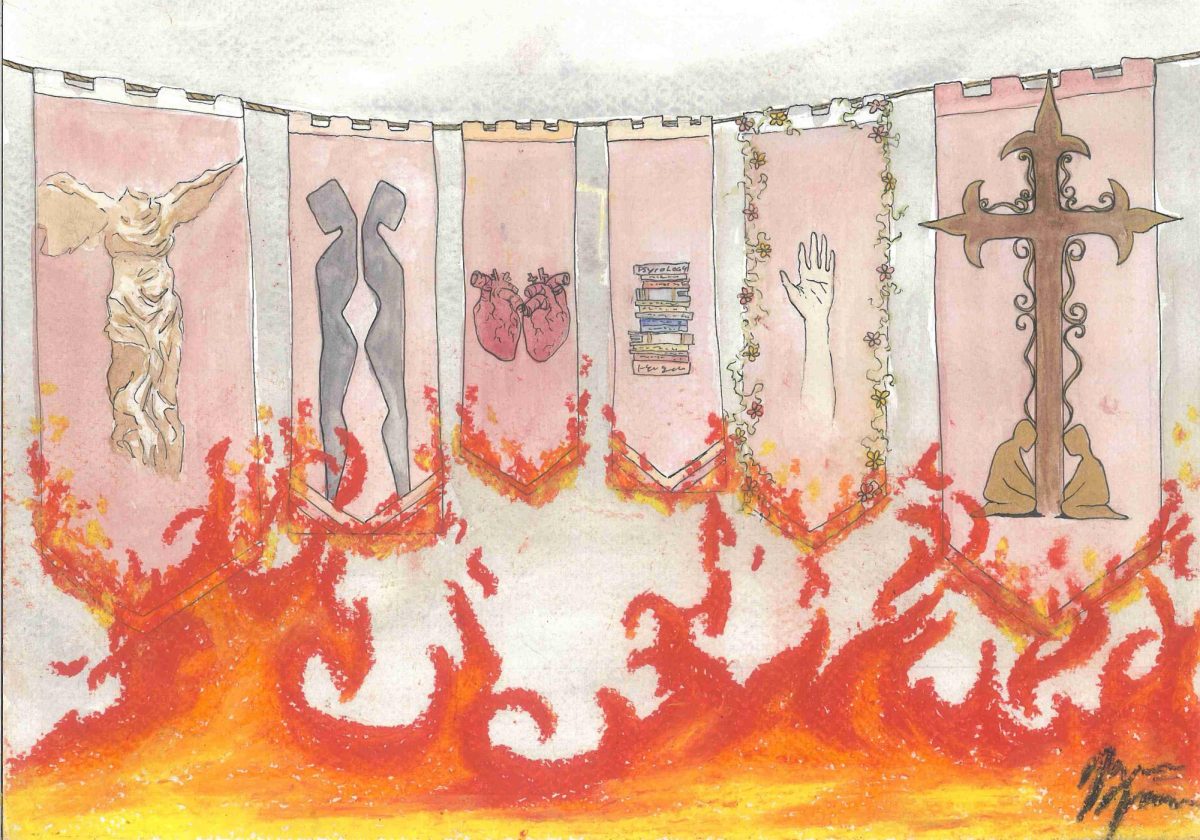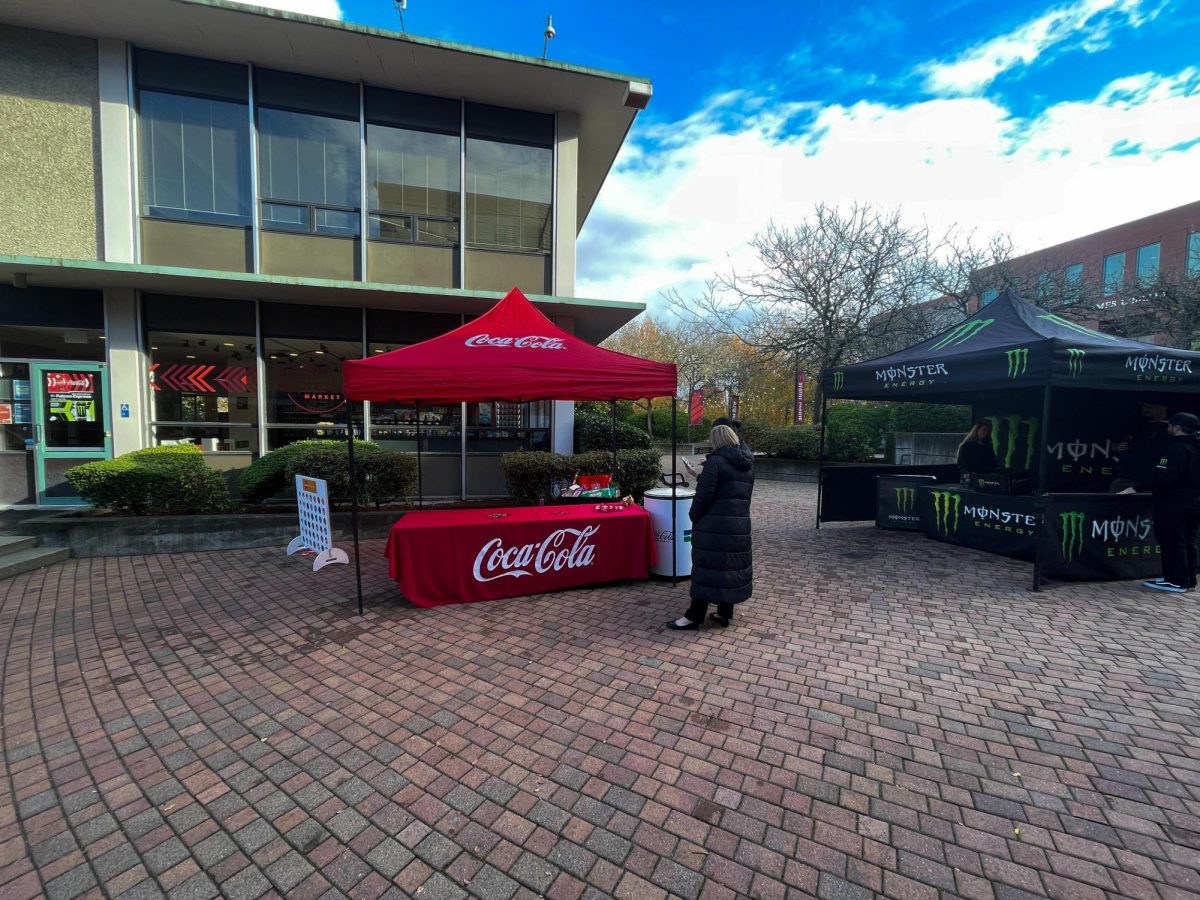About a year ago during finals week, Joe Cagley noticed that a library classroom was empty, so for the first time in his life he studied there.
An hour later a stranger walked in, closed the door and asked if Cagley was a member of the LGBTQ+ community. Cagley recalled being shocked and scared because the stranger could have easily beaten him up. He thought to himself that this is the moment where he “would get gay bashed.”
However the stranger, who was also a student, told Cagley that the previous night he had asked God for someone to talk to about struggling his entire life with his sexuality, with reconciling his Christian identity with his sexual orientation.
The student asked Cagley a lot of questions, including if being LGBTQ+ was a choice or a sin.
They talked for awhile, but Cagley could not give the stranger the insights he needed because Cagley himself was not a Christian. Instead Cagley gave him the number of a friend who was, as well as his own number, and told him he was welcome to call anytime.
“When I left the library that day I looked back behind me and I waved goodbye and he waved back, and then about a week later he killed himself,” Cagley concluded.
A story never shared before had tears flowing in response from ASSP members, senators and guests, crowded around the seminar table and crammed along the walls during the Nov. 5 senate session.
The senators had filed into the library as normal, but with an estimated 30 guests behind them, more than ever before this school year.
The narrative from Cagley was the opening to a radical proposal and the driving inspiration behind it that could change life for the LGBTQ+ community on campus forever.
Spectators present included Seattle Pacific University students, professors and members of Haven (a club that provides a safe space at SPU for LGBTQ+ students and discussion on issues facing their community,) who had come to support what was going to be presented.
The proposal on the agenda was titled “Rewrite Rhetoric found in Community and Lifestyle Expectations.” Specifically, it proposed to replace the Statement of Human Sexuality and revise Section 8 of Student Standards of Conduct and Nondiscrimination title.
This movement is being led by by a group of students include, Senator Lila Fowler, Levi Clum, and Senator Cagley.
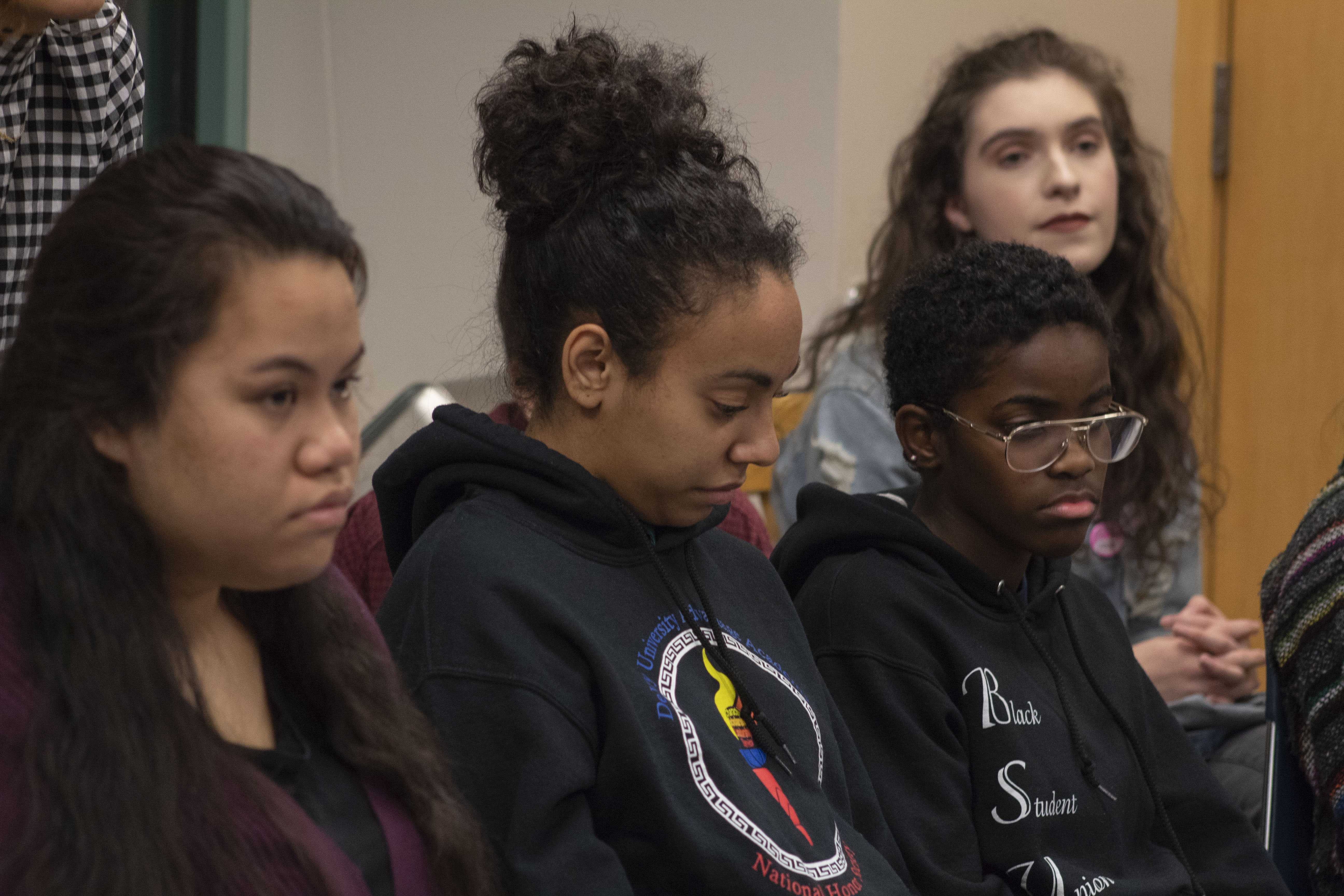
Essentially it moves to completely remove the Statement of Human Sexuality from SPU’s Mission, Core Themes, and Vision, and replace it with a Statement of Affirmation that identifies as all inclusive to every sexuality on campus.
In the proposal packet, it was stated that “the motivation to propose these changes stem from the concerns of LGBTQ+ student well-being as well as theological issues within the existing rhetoric.”
Fowler opened by reviewing the packet, which included research studies and students’ personal testimonies and experiences to support the motion.
After Fowler’s opening, Clum explained in great detail why SPU needs to make “a space for [LGBTQ+ students] to be seen and heard and welcomed.”
“SPU itself has entered into this conversation for reconciliation, we as a university can not pick and choose who we reconcile with,” the proposal reads, and this proposal aims to reconcile, protect and include the LGBTQ+ members on campus.
A big question asked by senators was how the current rhetoric was damaging to the LGBTQ+ community.
One of the many responses was from Cagley, describing the distal and proximal factors of stress such as “being queer within the Biblical teaching.”
“You internalize you are not part of God’s creation and can form self hatred which has been shown through our statistical research provided that it increases the risk of self harm,” Cagley said.
There were also several speakers, both senators and guests, who presented their own personal experiences.
Drew Cortez, Vice President of Haven, shared how just last week he experienced how his boyfriend was called a faggot on our campus by a passerby.
Cortez explained that there was no institutional action they could take to report this, because the nondiscrimination statement is not protective for this community. “You could just call me a faggot right now and I can not do anything about it … the statement breathes fear and creates walls.”
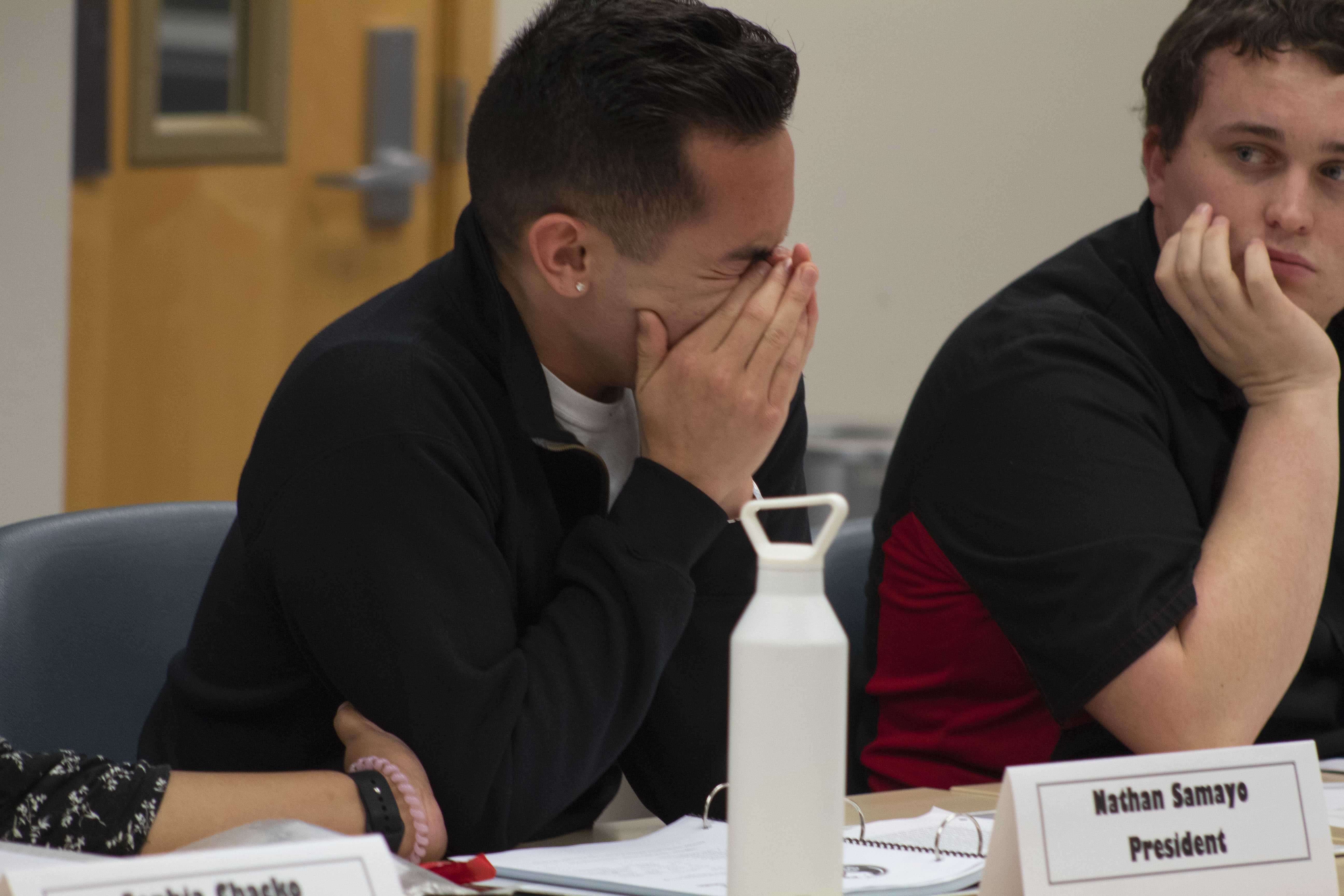
This statement, however, was also supported by those who thought it would increase admission at SPU and radiate a more inclusive reputation throughout the state.
First-year student Mysonne Brown, an ambassador for the Admissions Office, said, “[I] can count several students that are strictly not going to this school, strictly for the fact that they do not feel welcome and because they affirm with the LGBTQ+ community.”
Senator Alonso Ramirez and Cortez who have also had experience working with the Admissions Office, both noted that students who see SPU as a prospect will not come because of the statement and the fear of having no protection or support.
Senator Liam Smith, a political science major spoke up on the proposal, declaring himself a conservative Republican who upholds traditional church values in the senate meeting, but despite this stated that this proposal has his “full and unconditional support.”
Senator Nate Canny, who earlier in senate questioned if the original statement had any good in it, stated, “this is about love, even if it is not something I understand, this is change that needs to be made.”
Other senators and members of ASSP took the same attitude as Smith and Canny, such as Senator Sara Asaad, Ramirez, Vice President of Ministries Madyson Fulcher, Senator Chaney Holland and President Nathan Samayo, to name a few.
“Who are we to dictate the rhythms and patterns of love,” stated the concluding statement of the proposal, and was repeated in the session by Clum.
He expanded that Seattle Pacific University needs to “take into consideration the fact that there are those here who this is a daily part of their identity and the way they walk in the world, and [senate] need[s] to respect them and see their humanity and be an ally with them.”
Cagley stated at the end of his story, “I am telling you this story because I do not want to carry this trauma alone anymore … a loss no one else knew. I want everyone to ask themselves tonight why is this the first time you are hearing this story. When we look at this proposal, I want everyone to consider that they are a witness to this man’s death as I have been witness, and we have a collective responsibility to rectify this injustice.”
In Other Business:
Emma Fellenstein was elected unanimously to become the Senator for the School of Theology, making this senate the first full senate in over five years.

















































































